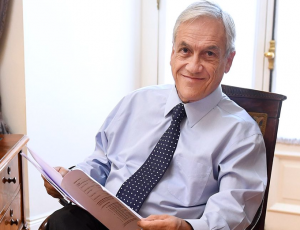Former US president Barack Obama offers a bleak portrait of much of the Middle East’s leadership in his new memoir, as he reveals how he still agonizes on where he applied pressure during the Arab Spring. In “A Promised Land,” Obama reflects on the criticism that he was hypocritical for coaxing Egypt’s Hosni Mubarak to step down in the face of 2011 protests while treading lightly as Bahrain, a major base for US forces, suppressed demonstrations.
“I had no elegant way to explain the apparent inconsistency, other than to acknowledge that the world was messy; that in the conduct of foreign policy, I had to constantly balance competing interests,” he writes. “Just because I couldn’t in every instance elevate our human rights agenda over other considerations didn’t mean that I shouldn’t try to do what I could, when I could, to advance what I considered to be America’s highest values.”
He describes being cautioned not to pressure Bahrain by Abu Dhabi Crown Prince Mohammed bin Zayed Al-Nahyan, whom Obama described as “perhaps the savviest leader in the Gulf.”
After meeting Mubarak in 2009 in Cairo, Obama writes that he was “left with an impression that would become all too familiar in my dealings with aging autocrats: Shut away in palaces, their every interaction mediated by the hard-faced, obsequious functionaries that surrounded them, they were unable to distinguish between their personal interests and those of their nations.
On the same trip, Obama is left with a grim impression of Saudi Arabia and its strict gender separation and religious codes, and said the palace tried to gift him lavish jewelry. Obama writes that he was “struck by how oppressive and sad such a segregated place felt, as if I’d suddenly entered a world where all the colors had been muted.”
Obama said he was aware of the risks when he publicly pushed Mubarak to cede power but believed that if he were a young Egyptian, “I’d probably be out there” in the demonstrations. “I might not be able to stop a China or a Russia from crushing its own dissidents. “But the Mubarak regime had received billions of US taxpayer dollars; we supplied them with weapons, shared information and helped train their military officers; and for me to allow the recipient of that aid, someone we called an ally, to perpetrate wanton violence on peaceful demonstrators, with all the world watching, that was a line I was unwilling to cross.”
Obama had a notoriously rocky relationship with Israeli Prime Minister Benjamin Netanyahu, especially over the US-brokered nuclear deal with Iran, which is not covered in the book which spans through events until 2011. Obama portrays Netanyahu as a smooth operator who sought him out after the future president’s 2004 election to the US Senate.
“But his vision of himself as the chief defender of the Jewish people against calamity allowed him to justify almost anything that would keep him in power — and his familiarity with American politics and media gave him confidence that he could resist whatever pressure a Democratic administration like mine might try to apply.”
Obama in his book is also forthright in his frustrations with the pro-Israel lobby AIPAC, saying it had swung to the right to align with Israeli politics, and questioned whether he came under particular scrutiny as an African-American. Obama won the vast majority of Jewish American votes “but as far as many AIPAC board members were concerned, I remained suspect, a man of divided loyalties.”






